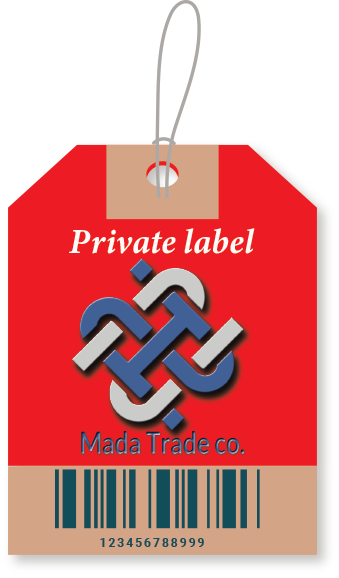1. Higher Profit Margins
-
Cost Efficiency: Private label products often have lower production costs compared to national brands because they don't require extensive marketing or advertising budgets.
-
Increased Margins : Retailers can sell these products at a lower price point than national brands while still maintaining higher profit margins due to reduced overhead costs.
2. Customer Loyalty
-
Brand Differentiation : Private label products help retailers create a unique identity and differentiate themselves from competitors.
-
Loyalty Building : When customers consistently purchase private label products, they develop a sense of loyalty to the retailer rather than the manufacturer. This fosters long-term relationships between the customer and the store.
3. Control Over Product Offerings
-
Customization : Retailers can tailor product specifications, packaging, and pricing to meet their specific needs and target market preferences.
-
Quality Assurance : By working closely with manufacturers, retailers can ensure consistent quality standards for their private label products.
-
Innovation : Retailers have the flexibility to introduce new products quickly based on consumer trends or feedback without being tied to existing brand constraints.
4. Competitive Advantage
-
Market Differentiation : Private label products allow retailers to compete directly with national brands by offering similar quality at a lower price.
-
Exclusivity : Since private label products are exclusive to the retailer, they cannot be found elsewhere, giving the retailer an edge over competitors who may only carry national brands.
5. Data-Driven Insights
-
Consumer Insights : Retailers gain valuable insights into consumer behavior through sales data of private label products, enabling them to make informed decisions about inventory management, product development, and marketing strategies.
-
Trend Identification : By analysing purchasing patterns, retailers can identify emerging trends and adjust their product offerings accordingly.
6. Improved Inventory Management
-
Reduced Dependency on Suppliers: With private label products, retailers rely less on third-party suppliers for core product lines, which helps streamline supply chain operations.
-
Optimized Stock Levels : Retailers can better manage stock levels since they control the production process and can order quantities that align with demand forecasts.
7. Enhanced Customer Experience
-
Value Proposition : Private label products often provide better value for money, attracting price-sensitive customers while maintaining high-quality standards.
-
Consistent Availability : Retailers can ensure steady availability of private label products, reducing out-of-stock situations and improving overall customer satisfaction.
8. Branding Opportunities
-
Storytelling : Retailers can use private label products as part of their broader branding strategy, creating narratives around sustainability, local sourcing, or ethical practices.
-
Visual Identity : Customized packaging allows retailers to reinforce their visual identity and strengthen brand recognition among shoppers.
9. Risk Mitigation
-
Diversification : Offering private label products reduces dependency on single suppliers or national brands, mitigating risks associated with supplier issues or changes in brand strategies.
-
Price Stability : Retailers can maintain stable pricing for private label products even when national brands increase prices, providing stability for both the business and its customers.
10. Environmental and Social Responsibility
-
Sustainable Practices : Retailers can emphasize eco-friendly materials, sustainable sourcing, and ethical manufacturing processes in their private label products, appealing to environmentally conscious consumers.
-
Local Sourcing : Some retailers choose to source ingredients or materials locally for their private label products, supporting regional economies and promoting community engagement.
Conclusion:
Private label products offer numerous strategic advantages for retailers, including higher profit margins, increased customer loyalty, greater control over product offerings, and enhanced competitiveness. By leveraging these benefits, retailers can build stronger connections with their customers, optimize operational efficiency, and establish themselves as trusted providers of quality goods at competitive prices.
